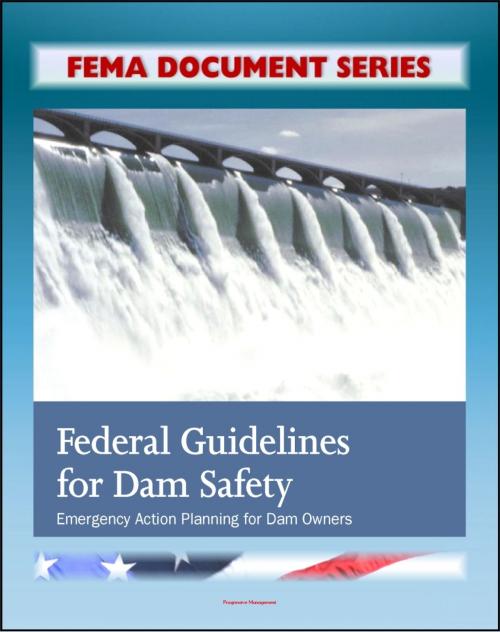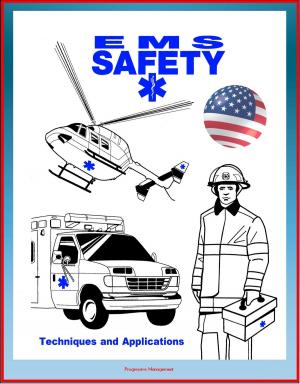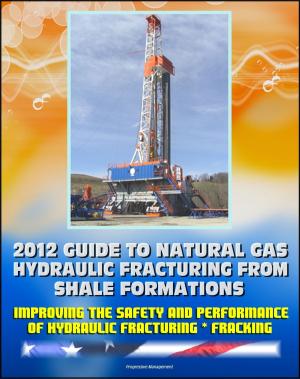FEMA Document Series: Federal Guidelines for Dam Safety: Emergency Action Planning for Dam Owners
Nonfiction, Social & Cultural Studies, Political Science| Author: | Progressive Management | ISBN: | 9781458020239 |
| Publisher: | Progressive Management | Publication: | June 22, 2011 |
| Imprint: | Smashwords Edition | Language: | English |
| Author: | Progressive Management |
| ISBN: | 9781458020239 |
| Publisher: | Progressive Management |
| Publication: | June 22, 2011 |
| Imprint: | Smashwords Edition |
| Language: | English |
This Federal Emergency Management Agency (FEMA) document describes federal guidelines for dam safety. There are many types of emergency events that could affect dams. Whenever people live in areas that could be flooded as a result of failure of or operation at a dam, there is a potential for loss of life and damage to property. The general purpose of these guidelines is to encourage thorough and consistent emergency action planning to help save lives and reduce property damage in areas that would be affected by dam failure or operation. An Emergency Action Plan (EAP) is a formal document that identifies potential emergency conditions at a dam and specifies preplanned actions to be followed to minimize property damage and loss of life. The EAP specifies actions the dam owner 1/ should take to moderate or alleviate the problems at the dam. It contains procedures and information to assist the dam owner in issuing early warning and notification messages to responsible downstream emergency management authorities of the emergency situation. It also contains inundation maps to show the emergency management authorities of the critical areas for action in case of an emergency.
Whenever people live in an area that could be flooded by the operation or failure of a dam, an emergency potential is assumed to exist. An emergency in terms of dam operation is defined as an impending or actual sudden release of water caused by an accident to, or failure of, a dam or other water retaining structure, or the result of an impending flood condition when the dam is not in danger of failure. The release of water may endanger human life or downstream property.
The Federal Emergency Management Agency (FEMA) is responsible for coordinating federal response to disasters and providing federal guidance to state and local emergency management authorities for all foreseeable emergencies in the United States. A recent survey indicates there are over 22,000 high or significant hazard potential dams in the United States, of which approximately 18,300, or 83 percent, do not have an EAP. The absence of an EAP at most state-regulated dams is recognized by FEMA as a deficiency in national emergency preparedness. To improve the Nation's emergency preparedness posture to respond to emergencies affecting dams, FEMA believes formal guidelines are needed to help dam owners effectively develop and exercise EAPs for dams.
This is a privately authored news service and educational publication of Progressive Management.
This Federal Emergency Management Agency (FEMA) document describes federal guidelines for dam safety. There are many types of emergency events that could affect dams. Whenever people live in areas that could be flooded as a result of failure of or operation at a dam, there is a potential for loss of life and damage to property. The general purpose of these guidelines is to encourage thorough and consistent emergency action planning to help save lives and reduce property damage in areas that would be affected by dam failure or operation. An Emergency Action Plan (EAP) is a formal document that identifies potential emergency conditions at a dam and specifies preplanned actions to be followed to minimize property damage and loss of life. The EAP specifies actions the dam owner 1/ should take to moderate or alleviate the problems at the dam. It contains procedures and information to assist the dam owner in issuing early warning and notification messages to responsible downstream emergency management authorities of the emergency situation. It also contains inundation maps to show the emergency management authorities of the critical areas for action in case of an emergency.
Whenever people live in an area that could be flooded by the operation or failure of a dam, an emergency potential is assumed to exist. An emergency in terms of dam operation is defined as an impending or actual sudden release of water caused by an accident to, or failure of, a dam or other water retaining structure, or the result of an impending flood condition when the dam is not in danger of failure. The release of water may endanger human life or downstream property.
The Federal Emergency Management Agency (FEMA) is responsible for coordinating federal response to disasters and providing federal guidance to state and local emergency management authorities for all foreseeable emergencies in the United States. A recent survey indicates there are over 22,000 high or significant hazard potential dams in the United States, of which approximately 18,300, or 83 percent, do not have an EAP. The absence of an EAP at most state-regulated dams is recognized by FEMA as a deficiency in national emergency preparedness. To improve the Nation's emergency preparedness posture to respond to emergencies affecting dams, FEMA believes formal guidelines are needed to help dam owners effectively develop and exercise EAPs for dams.
This is a privately authored news service and educational publication of Progressive Management.















